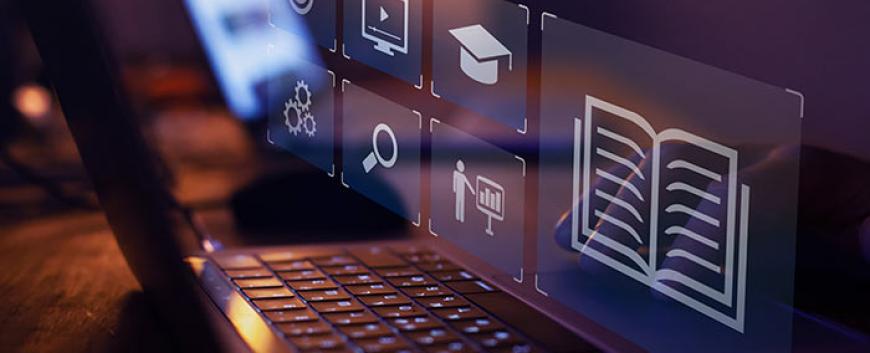Oct
07

Date: 7-11 October 2024
Time: 9:00AM-11:00AM ET (New York Time)
Presenter(s): Mohammad Alaee-Kerahroodi
Credits: 10 PDHs/1.0 CEU
Register Early and Save
Register by 30-September-2024 and save 10% on your registration fee when you use promo code MIMO24 during the checkout process.
Student Discount
Student members register by 30-September-2024 and save 15% on your registration fee when you use promo code STUDENTMIMO24 during the checkout process.
Abstract
The course is divided into five lectures, as detailed below:
Lecture 1: Radar Systems Fundamental (2 Hours)
- Introduction to Radar Systems
- Overview of radar applications, Basic radar system components and operation
- Mathematical foundations of radar range calculation, Noise sources and their impact on radar performance, Swerling models for target fluctuation analysis
- Radar antenna types and characteristics, Transmitter and receiver design considerations, Antenna beamforming techniques
- Understanding clutter and its impact on radar signals, Clutter cancellation methods, Improvement factor and its significance, Doppler processing for target detection
- Radar Waveform and Pulse Compression
- Radar waveform design and constraints
- Principles of pulse compression in radar
- Pulse compression techniques and their advantages
- Pulse Doppler, FMCW and PMCW Radars
- Pulse Doppler Radar principles
- Frequency-Modulated Continuous Wave (FMCW) radar principles
- Phase-Modulated Continuous Wave (PMCW) radar principles
Lecture 2: Advanced Radar Systems (2 Hours)
- Phased Array and MIMO Radars
- Phased array radar concept
- Multiple-Input, Multiple-Output (MIMO) radar concept and its differences/ advantages comparing to phased array
- MIMO radar beamforming and target localization
- Orthogonal Waveforms in MIMO Radars
- TDM, FDM, DDM, and CDM (Slow-time and Fast-time) in MIMO radars
- Signal processing for MIMO radars
- Receive processing in phased-array and MIMO Radars
- Receive processing in phased-array and MIMO Radars
- Direction of Arrival (DoA) estimation techniques in radar (phased-array and MIMO)
- Convex and Non-Convex Optimization in Radar
- Optimization methods for radar waveform design
- Non-convex optimization challenges and solutions
Lecture 3: Practical Radar Signal Processing (Python Scripting): Motion Detection and Breathing Rate Estimation with Infineon BGT60LTR11AIP (2 Hours)
- Scripting and data analysis with 60 GHz mmWave Pulse Doppler Radar
- Implementation of I& Q Demodulator, DDS and Filter, Motion Detection, Phase Estimation, and Breathing Rate Estimation
Lecture 4: Practical Radar Signal Processing (Python Scripting): Breathing and Heart Rate Estimation with Infineon BGT60TR13C (2 Hours)
- Scripting and data analysis with 60 GHz mmWave FMCW Radar with 1Tx and 3Rx and 5 GHz bandwidth
- Range FFT, Slow-Time signal Analysis, Phase estimation, Filtering, Breathing Rate and Heart Rate Estimation.
Lecture 5: Practical Radar Signal Processing (Python Scripting): Breathing and Heart Rate Estimation with Texas Instruments IWR6843ISK FMCW MIMO Radar (2 Hours)
- Understanding the concept of MIMO, for angular resolution improvement
- Scripting and data analysis with 60 GHz mmWave FMCW Radar with 2Tx and 4Rx and 4 GHz bandwidth
Range FFT, Slow-Time signal Analysis, Phase estimation, Filtering, Breathing Rate and Heart Rate Estimation
Biography

Mohammad Alaee-Kerahroodi received his PhD in telecommunication engineering from Isfahan University of Technology, Iran, in 2017. He furthered his academic journey by serving as a visiting researcher at the University of Naples "Federico II" in Italy in 2016. Currently, He holds the position of Research Scientist at SnT, University of Luxembourg, where he leads the prototyping and radar laboratory for SPARC group.
His extensive expertise, spanning over 12 years, encompasses a diverse array of radar systems, including automotive, ground and air surveillance, weather, passive, and marine radars. In 2022,
Dr. Alaee published the book "Signal Design for Modern Radar Systems" with Artech House, delving into the use of nonconvex optimization techniques for signal design in radar systems. His research focuses on radar waveform design and array signal processing, with a particular interest in developing innovative solutions for 4D-imaging millimetre wave MIMO radar sensors.
